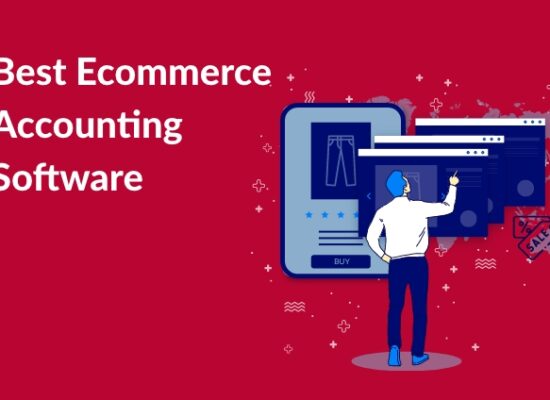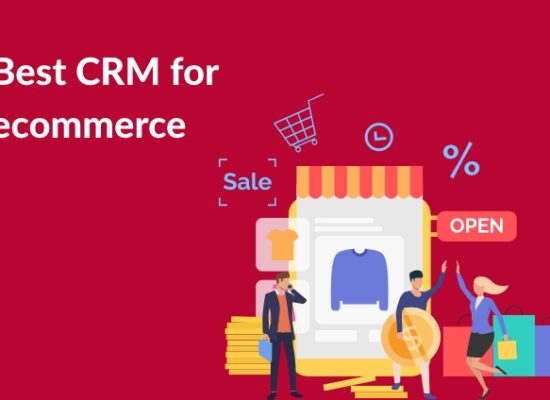
Do you want to protect your ecommerce business? welcome here, check the finest tips to choose the right ecommerce business insurance.
Success in the digital market depends not only on revenue but also on protecting your business from unforeseen accidents. This guide to e-commerce business insurance breaks down the essential security levels that your online business requires.
Insurance is a type of financial arrangement. It acts as a safety net, protecting against any financial losses and responsibilities brought on by these unexpected events. Customers’ confidence is boosted by this protection. All things considered, insurance is an essential tool for the risk management policy of an ecommerce business.
It might be exciting to be an ecommerce business entrepreneur but the store carries a certain amount of risk. Ecommerce business insurance can help you in this situation. We’ll go over the essentials in this article to help you safeguard your ecommerce business.
This insurance serves as a safety in the dynamic world of ecommerce. It guarantees that your online store is resistant to both real and virtual obstacles, so you can concentrate on expanding your company with assurance.
Read More : How to start an Ecommerce Business?
Undoubtedly yes. Your ecommerce business requires insurance for protection because
- Your assets are protected against loss, damage, and theft by insurance. This coverage makes sure you don’t have to pay for replacements if something goes wrong.
- Cyber insurance is essential due to the rise in the number of cyber threats. It protects your online store from cyberattacks, data leaks, and other online threats.
- If someone says that your goods or services caused them harm or damage, liability insurance will defend your company. It functions as a safety net for events involving customers.
- Flexibility is provided by e-commerce insurance. Your insurance will handle risks related to your online business, making it a cost-effective solution.
- Unexpected accidents such as natural crises or other tragedies may force you to stop activities. During these times, business interruption insurance covers ongoing costs and lost revenue.
- Your company’s insurance boosts client trust. It builds trust and motivates more people to choose your store by indicating that you take their security seriously.
A wise move in the ecommerce business is to get the appropriate insurance. It acts as a safety net, freeing you from worrying all the time about unpredictable obstacles.
As already said there are numerous ecommerce insurances available. Among the important ones are
For an online retailer, product liability insurance shields the company from possible financial losses brought on by hazardous goods. In the event that a product you sell online causes injury or damage, this insurance will pay for the necessary legal fees, hospital bills, or compensation claims. It guarantees that your company won’t have any loss if a consumer is hurt or has issues as a result of your goods.
For an online retailer, cyber liability insurance serves as a protector against cyberthreats. In case a cyberattack targets your online store, compromising private client information.
This insurance pays for legal expenses, data breaches, and even PR campaigns to repair your company’s reputation. It acts as a safety net to protect your e-commerce business from the financial consequences of cyberattacks.
For an e-commerce company, business interruption insurance is like having financial safety in case unanticipated events stops your business operations.
Let’s imagine a natural disaster or fire affects your e-commerce store, making it difficult for you to run your business as usual. The lost income during the outage is covered by this insurance. It makes up for lost revenue as a result of the disruption to your firm.
An e-commerce company’s professional liability insurance protects against the negative effects of professional errors. This insurance helps you if a consumer claims that your recommendation, service, or product caused them harm or financial loss.
It ensures that your online store doesn’t take the whole blame for customer’s allegations by paying for legal fees and possible settlements. It serves as a barrier to safeguard your company’s finances and reputation in the event that things don’t go according to plan.
Read More : 9 Best Ecommerce Platforms for Small Business
For an online retailer, cargo insurance acts as a safety net for your shipments. There is always a chance that goods you are shipping, whether domestically or abroad, will be lost or damaged in transportation. Cargo insurance intervenes to compensate for the monetary damages brought on by these unexpected incidents.
This insurance makes sure that your e-commerce company doesn’t have a financial setback because of missing or damaged items during transport, regardless of theft, accidents, or other misfortunes. It’s basically insurance for peace of mind, safeguarding your goods from your online store to the customer’s door.
For an e-commerce company, general liability insurance serves as a safety to shield you from unforeseen business disasters. This insurance covers you in the event that someone trips and falls while accepting a delivery, or if there are allegations of property damage or problems with advertising.
It ensures that the entire financial weight of accidents or disputes doesn’t fall on your ecommerce company by covering legal bills, medical costs, and potential settlements. Essentially, it’s a basic barrier that offers security of funds and comfort in the uncertain world of ecommerce.
For an online retailer, property insurance is a security guard watching over your tangible assets. If you own a physical store, warehouse, or office, this insurance guards against theft, fire, and other natural calamities.
Property insurance takes over to cover the monetary losses brought on by an unpredictable event, whether it’s your inventory, equipment, or the actual location where your firm operates.
For an online retailer, workers compensation insurance acts as a safety for your staff. This insurance pays medical costs and a percentage of missed wages if an employee of your business is hurt or becomes ill while working.
It’s an essential safeguard to make sure your workers are taken care of. In the event of workplace sickness or injuries, your e-commerce company won’t be affected with large financial bills. It creates a safe and secure work atmosphere and acts as a safety for your team and your company.
For an online retailer, supply chain insurance functions as a kind of safety to prevent interruptions in the supply chain. Your supply chain is vulnerable to a number of risks including problems with transportation and natural disasters.
When there are problems in the production or delivery process, this insurance comes to the rescue by compensating financial losses. It’s essentially a safety precaution to ensure that your company continues to operate normally even in the event that unforeseen difficulties occur during the manufacturer-to-customer route.
For e-commerce companies to reduce risks and maintain a safe and reliable online presence, a mix of various insurance kinds is necessary.
Read More : Top Ecommerce Tools Every Entrepreneur Should Use
Some of the best ecommerce business insurance providers based on customer satisfaction and convenience are
The Hartford has emerged as a reliable insurance vendor. It is a preferred option for ecommerce insurance irrespective of size or kind of business. It offers a wide range of coverage options such as protection against property damage and data breaches.
The Hartford provides business owners policy that includes general liability, $15,000 for property protection and $687 for data breaches annually.
Next Insurance isn’t so old. It has swiftly garnered popularity especially among Amazon vendors by meeting the platform’s insurance requirements, encompassing a $1 million general liability coverage.
Next Insurance offers $10,000 for equipment and property coverage. One can save upto 10% on insurance policies with Next Insurance.
Nationwide is a well-established insurance provider. It presents tailored policies that can be bundled to seamlessly cover both physical and online business aspects.
Nationwide has a coverage of upto $20 million for commercial property.
Hiscox is highly praised for its flexibility, offering personalized policies and adaptable coverage options. It proves particularly advantageous for small businesses operating in the ecommerce sector.
Hiscox provides a $2 million maximum general liability policy. The cost of adding cyber security to the policy is $250 more. In case you go with two policies, it gives you a 5% discount.
Insureon provides tailored coverage solutions specifically crafted to address the unique needs of ecommerce enterprises. It has served more than 350,000 small scale businesses with its 10 years of experience.
Simple Business is a dedicated insurance provider which offers numerous coverages for your ecommerce business. You can consider checking the policies before going for the coverage.
Simple Business gives a coverage of $10,000 for extortion and $50,000 for forensic and legal matters.
Thimble is a very convenient insurance provider which is meant for small businesses. It is regarded best for etsy sellers. It offers coverage policies for general liability, property, equipment and many more.
Thimble policies limits enhance as your business expands. It offers limits as low as $500,000 and as high as $2 million.
There are various elements that influence the cost of e-commerce insurance. Small companies can obtain basic coverage for $500 to $1,000 per year. The cost may rise if your company expands or if you deal in high-risk goods.
Larger online retailers with greater annual sales and a wider selection of products may have to pay several thousand dollars for full coverage.
The kind of goods sold, the location of the business, the coverage limitations affect the price. One major cost factor is liability coverage, which guards against claims of property damage or client injury. It’s a good idea to speak with insurance companies. The right insurance is essential to protecting your company from future financial losses.
As we come to the end, keep in mind that insurance is your business’s trustworthy friend rather than just a safety net. The correct coverage guarantees the durability of your ecommerce business. As you navigate the digital landscape, make it a priority to use needs-based insurance.
Thus, keep your composure and use your knowledge to protect your ecommerce business when faced with uncertainty. With the protection of e-commerce business insurance, your path to long-term success remains unhindered, opening doors for expansion, longevity, and comfort in this fast-paced digital age. To protect your digital legacy, cheers!
FAQ’s
Why is insurance necessary for my e-commerce business?
E-commerce company insurance is essential since it protects your online business from a variety of hazards, such as product liability and cyber threats. It helps with business continuity, builds consumer trust, and guarantees financial safety.
What is covered by cyber insurance for my online store?
Cyber insurance protects your company from online dangers like ransomware attacks and data breaches. It usually pays for notice expenses, legal fees, and system restoration assistance so that your clients’ data is safe.
How can insurance against product liability help my online store?
If a product you sell ends up hurting someone, product liability insurance will shield you. It lessens the financial impact from lawsuits by paying for court costs, medical bills, and potential settlements.
Do small e-commerce enterprises have access to reasonably priced insurance options?
Yes, different insurance companies provide small businesses with specialized plans. You can frequently find affordable options that offer complete protection without going over budget by bundling key coverages.
Does inventory damage during shipping get covered by e-commerce insurance?
Absolutely, e-commerce policies frequently include shipping insurance. It guarantees that your goods reach clients undamaged by guarding against loss or damage to your inventory.
In the event of an incident, how can I file a claim?
Get in touch with your insurance company as soon as possible, giving them all the paperwork they need and an account of what happened. The majority of insurers have a simple claims procedure that is overseen by their customer service department.



